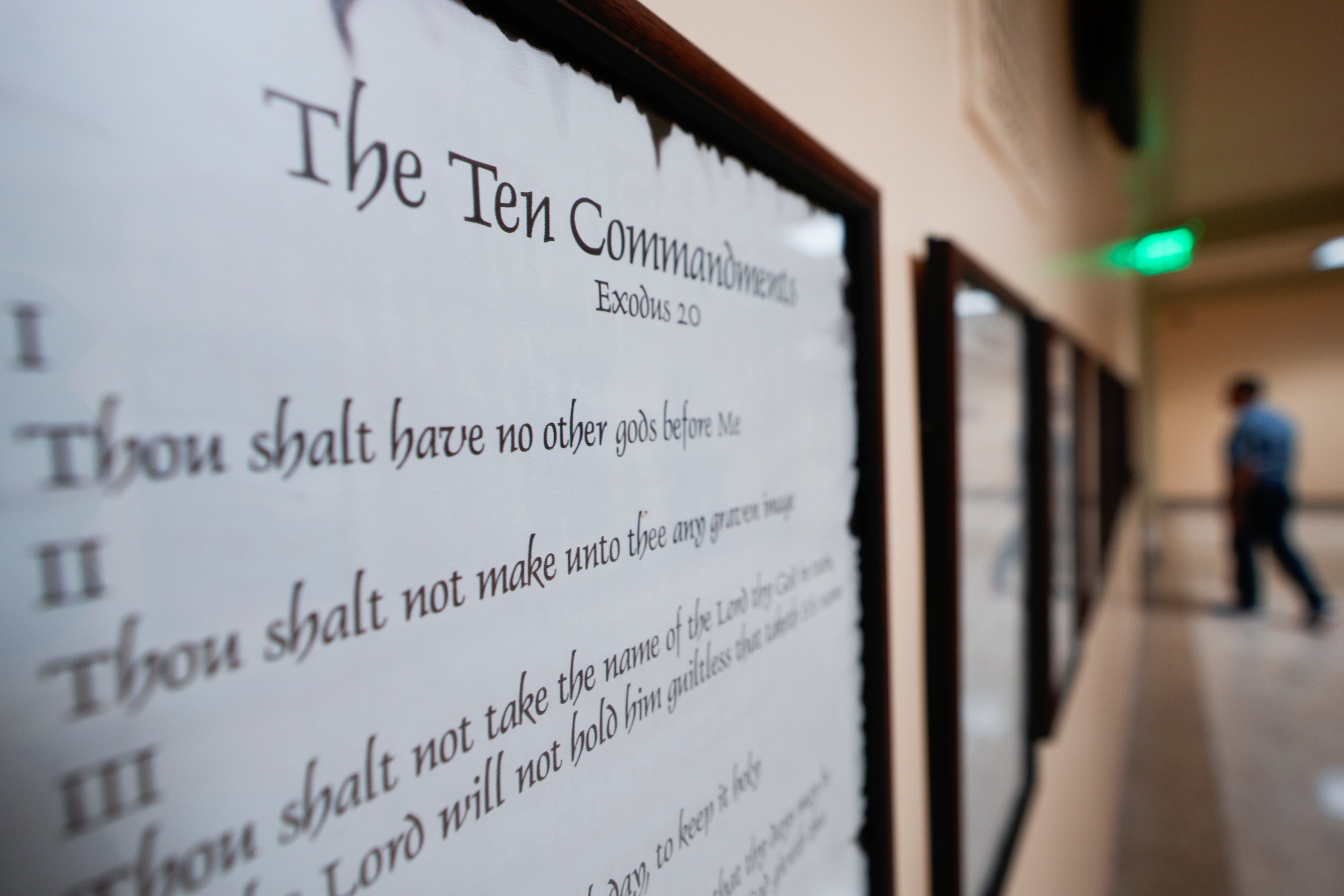Ten Commandments won't go in Louisiana classrooms until at least November as lawsuit plays out
Louisiana has agreed to delay implementing a requirement that the Ten Commandments be placed in all of the state’s public school classrooms until at least November

Louisiana will delay implementing a requirement that the Ten Commandments be placed in all of the state's public school classrooms until at least November, according to an agreement approved by a federal judge Friday.
A lawsuit was filed in June by parents of Louisiana public school children with various religious backgrounds, who said the law violates First Amendment language forbidding government establishment of religion and guaranteeing religious liberty.
Backers of the law argue that the Ten Commandments belong in classrooms because the commandments are historical and are part of the foundation of U.S. law.
In 1980, the U.S. Supreme Court ruled that a similar Kentucky law violated the establishment clause of the U.S. Constitution, which says Congress can “make no law respecting an establishment of religion.” The high court found that the law had no secular purpose but rather served a plainly religious purpose.
In 2005, the Supreme Court held that such displays in a pair of Kentucky courthouses violated the Constitution. At the same time, the court upheld a Ten Commandments marker on the grounds of the Texas state Capitol in Austin.
Bookmark popover
Removed from bookmarks